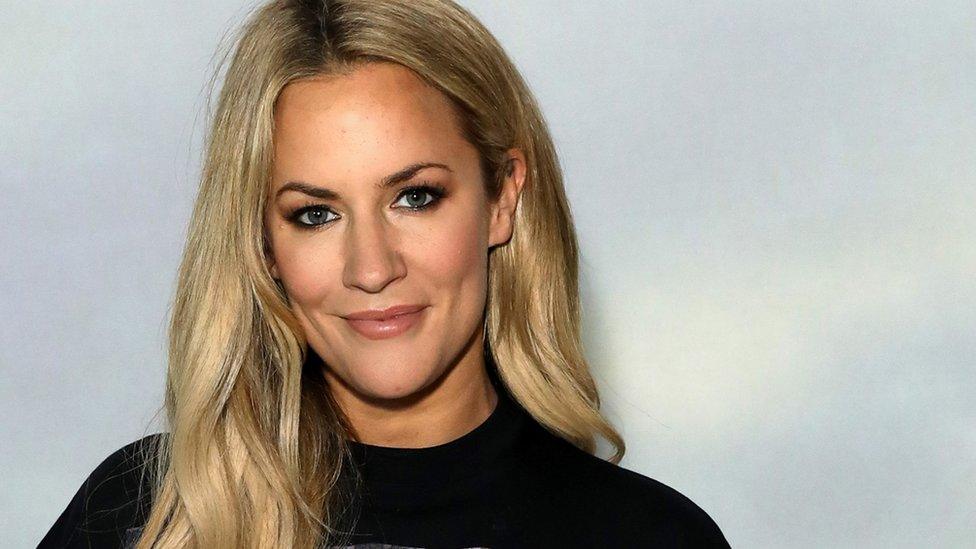Ellie Goulding: 'I was unprepared for fame'
- Published
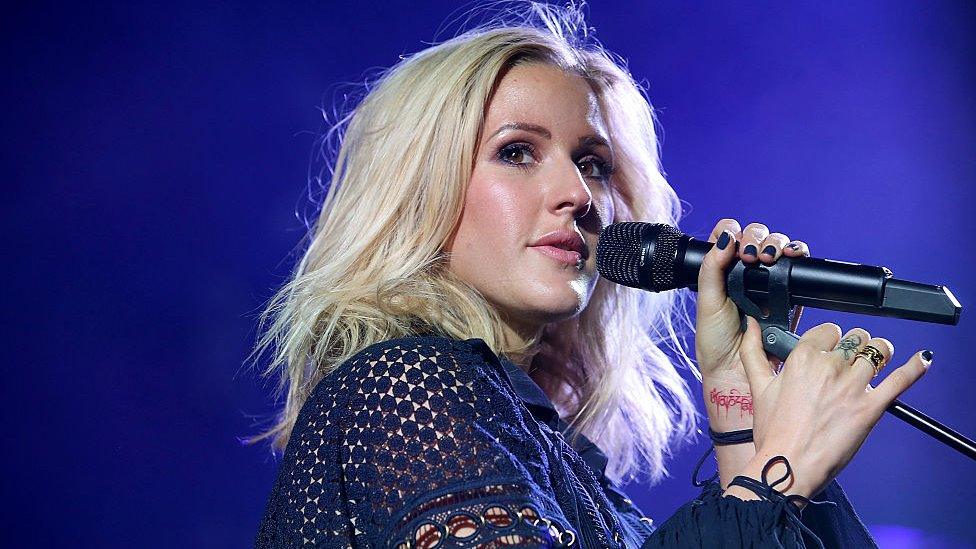
Ellie Goulding shot to fame after winning the BBC's Sound of 2010 a decade ago
Ellie Goulding says she was "not warned" about the pressures of fame when she started her career in 2009.
The pop star said her first few years in the spotlight were "tough" as she struggled with shyness while "being thrust in front of cameras".
"I thought that was just what my life was going to be, and what I'd signed up to," she said.
"It's only in the last four years I've realised that's not how it had to be. I wish there'd been a little more help."
The star admitted there had been "times when I felt really, really low," but added: "I'm feeling good now."
Addressing a panel on mental health at Annie Mac's AMP London conference, Goulding she had often faced situations where she felt compelled to perform against her better judgement.
"I remember being really poorly once," she said. "My voice was gone and I was just generally having a hard time, having toured solidly for about five years."
Knowing she was "unable to deliver" a live performance to her usual standard, she tried to withdraw from a live radio broadcast, only to be told: "'We'll never work with you again... You either do this or you're blacklisted.'
"So then you're like, 'I'll have to do it, but it's at the risk of completely shutting down,'" she said.
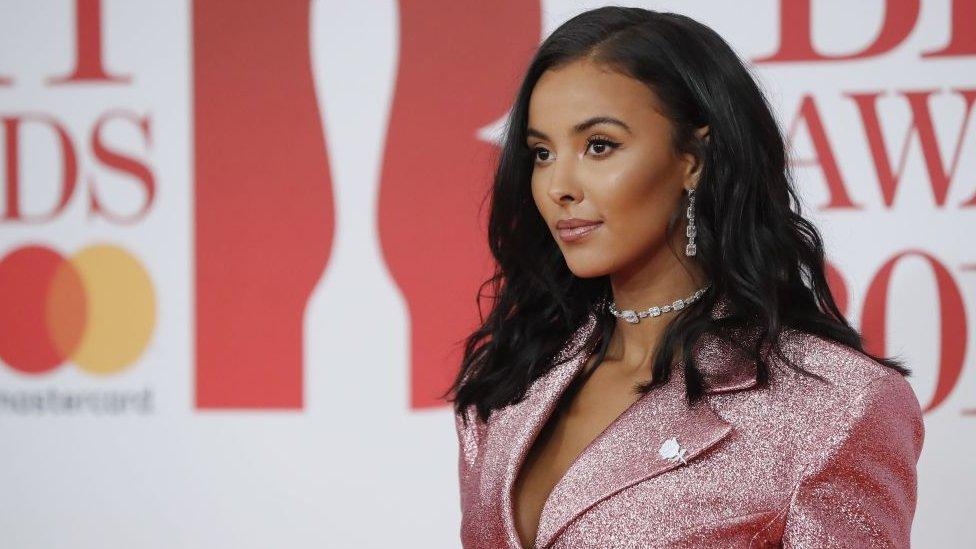
TV and radio presenter Maya Jama said she had regular breaks from social media to protect her mental health
She was joined in the discussion by Radio 1 presenter Maya Jama, who said she'd experienced a similarly aggressive work schedule at the start of her career.
"There's a mentality of no days off," she said. "I didn't take a holiday for the first two-and-a-half or three years [of my career] because I was scared I was going to miss out on a job; and that could be my big break.
"Now I feel fortunate that I can take time off but there are probably people just starting out who are in the same state of mind."
Intense scrutiny
However, both stars said the entertainment industry had become more attuned to people's mental health in the last four years.
Goulding was joined on stage by Ben Mortimer, co-president of her record label Polydor, who recalled the industry's attitude to young artists a decade ago.
"I remember going through an artist's schedule and we were like, 'There's a free day there, what shall we put in?'" he confessed.
"It sounds terrible but we didn't know any different. We just thought we were doing our job.
"But you come to it now and you're like, 'There's a week free there. Great, Ellie's got a holiday'."
Since becoming president of Polydor in 2016, Mortimer has introduced several mental health initiatives, and now works directly with artists to support them when issues like anxiety, depression and fatigue arise.
The panel discussion also covered the impact of social media on celebrities' mental health, with Jama calling services like Twitter and Instagram "a blessing and a curse".
"I wouldn't have half my jobs if it wasn't for social media," she said, "but then everything you do is under a massive microscope. It's not natural to hear so many other people's opinions about yourself."
Billie Eilish and Finneas O'Connell wrote their Bond theme song on a tour bus in Texas
The Radio 1 DJ, who faced criticism two years ago when an old tweet surfaced in which she mocked "dark-skinned" black women, said scrutiny could be "intense sometimes, but it's part of life now".
She added that Instagram gave her the chance to correct inaccurate media reports or combat sexism - as she did earlier this week, external when a tabloid paper ran a headline about her "jiggling her boobs".
"I can't let weird journalists that sit on their chairs and eat Hob Nobs writing [rubbish] stop me," said the broadcaster. "You can call these things out."
Goulding noted that it was impossible for celebrities to completely disengage from social media.
"If you're an artist and you're not on social media, you're essentially invisible."
"It's become a really vital part of your career when you're in the public eye," agreed Annie Mac, who was moderating the discussion. "The question is, when are you allowed to switch off?"
All of the panellists said they took regular breaks from their phones to escape the "echo chamber of negative comments"; while Jama recommended muting certain offensive words that cropped up regularly in her replies.
Jordan Stephens from the rap duo Rizzle Kicks also proposed a "national social media blackout month", and suggested newly-signed musicians should be mentored by older acts who'd experienced the harsh glare of media attention.
Goulding, for her part, extolled the virtues of regular exercise and literature.
"Whenever I'm feeling a bit low and I think, 'Oh, I'll just go on Twitter and see what people are saying about me,' I sometimes watch a documentary or a silly film, "she said, "but mainly I read books".
"When I get lost in fiction, it helps."

Follow us on Facebook, external, or on Twitter @BBCNewsEnts, external. If you have a story suggestion email entertainment.news@bbc.co.uk, external.
- Published3 December 2019
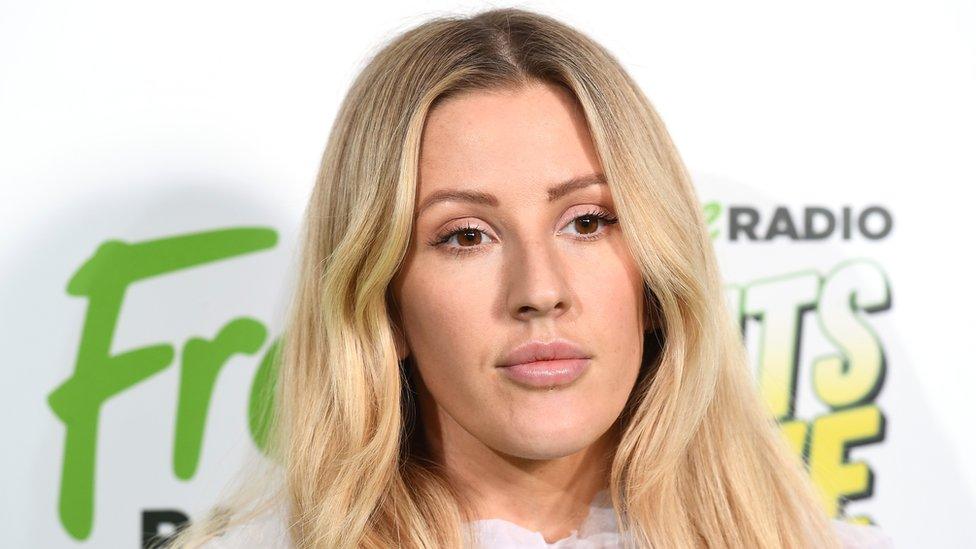
- Published27 December 2019
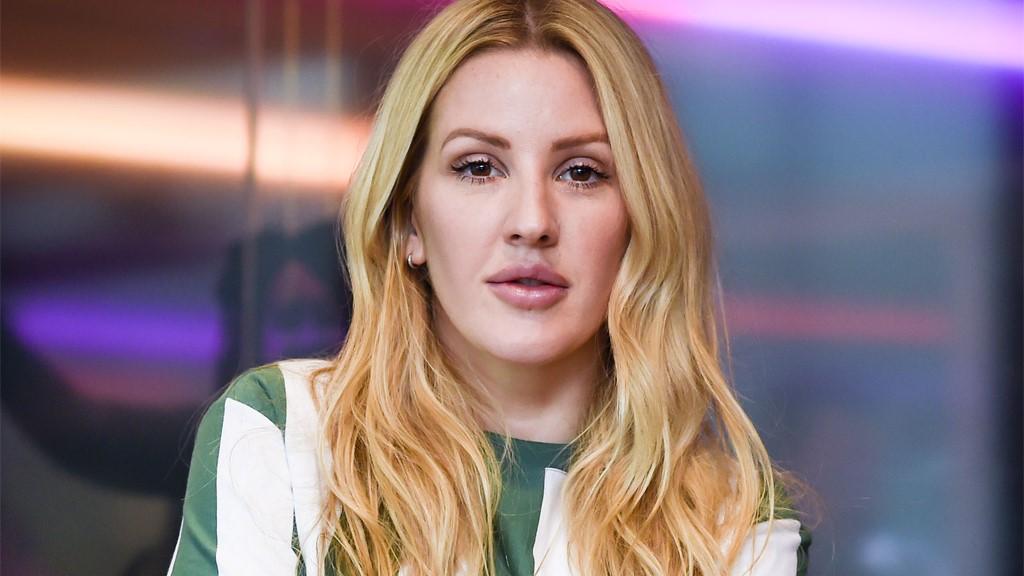
- Published6 November 2019

- Published17 February 2020
